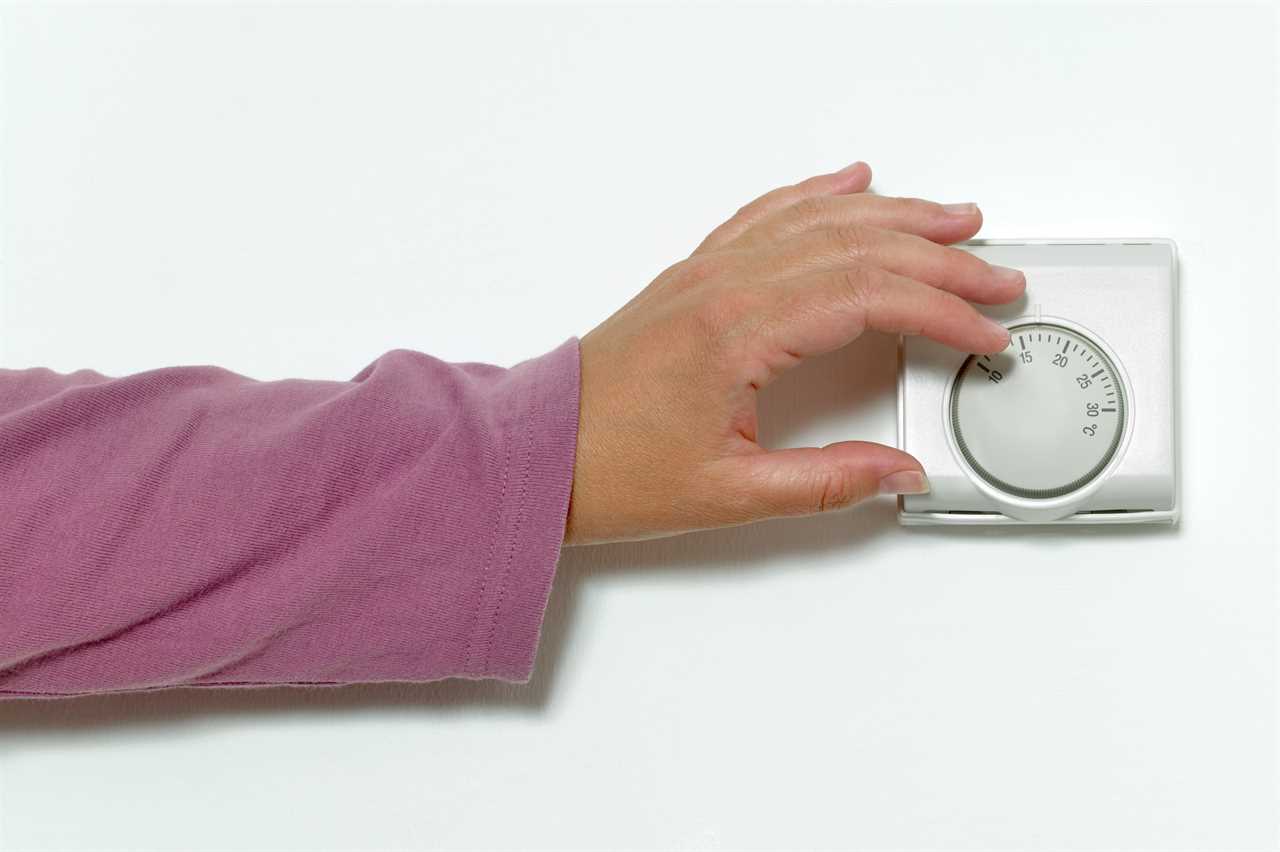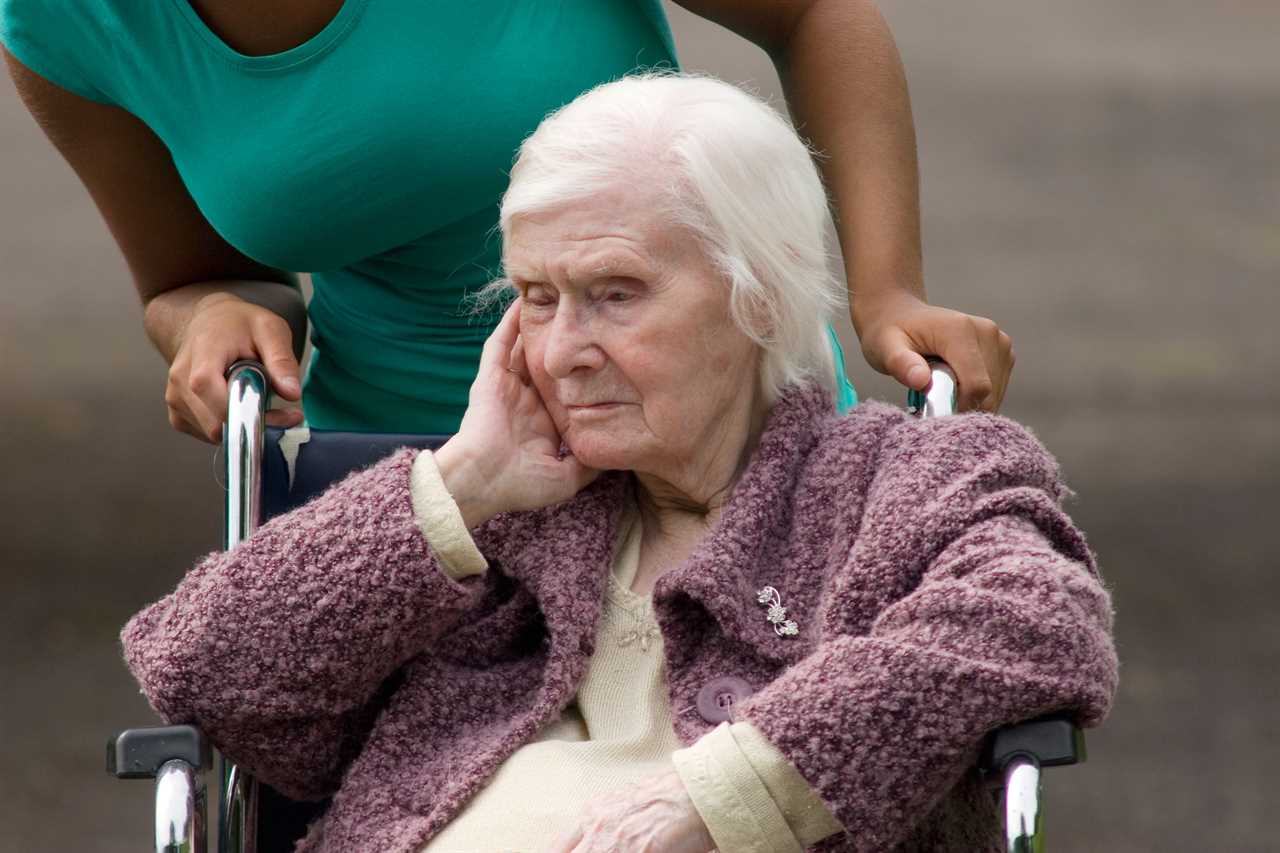ONCE you hit middle age, people say things start to go downhill.
That includes your health, with dozens of conditions more likely once you hit the 40 years old mark.

It’s important that if you are invited to an NHS check, like a cancer screening programme, you attend.
It could save your life.
Dr Margaret Ikpoh, Vice Chair of the Royal College of GPs (RCGP), outlines all the tests you should be getting through middle age – including ones you might have missed.
MEN & WOMEN
1. Bowel screening
Dr Ikpoh says: “There is a national bowel screening test that men and women – are invited to.
Read more health tips
“They’re invited to submit a stool sample, usually it’s delivered through the post.
“What that does is detect if there’s any small amounts of blood in their stool.”
Everyone aged 60 to 74 who is registered with a GP and lives in England is automatically sent a bowel cancer screening kit every two years.
Trending In The News launched the No Time 2 Lose campaign in April 2018, calling on the Government to lower the age of bowel screening from 60 to 50, to bring it in line with Scotland. In June that year, the Government agreed.
The risk of developing bowel cancer – the symptoms of which include a change in bowel habits – drastically increases once you turn 50.
Now, some people aged 56 are being invited to take part as a result of the change, with the aim of eventually lowering the age to 50.
In Wales, invites are sent to those aged 58 years and older, and in Northern Ireland it’s 60.
2. Blood pressure
Dr Ikpoh says high blood pressure is known as a “silent killer” – because often people don’t have symptoms.
While high blood pressure (hypertension) alone doesn’t cause death, it can lead to dozens of other health problems.
Dr Ikpoh says: “If it remains consistently high, one puts themself at risk of things like stroke or a heart attack.”
Around one in three British adults have the condition – but half of those have no idea, it’s estimated.
You won’t get a call from your GP asking you to come and get your blood pressure checked.
But Dr Ikpoh says: “If you are concerned about it, it’s really important to contact your local healthcare professionals to get that checked.
“There’s an increasing number of people who have access to home blood pressure monitors, and they acquire them online or in their local supermarket.
“There’s no harm in that when you get to middle age.
“We do have evidence to suggest that people do monitor it at home, it’s just as valid as coming in and having it done at the surgery.”
MEN
3. Cardiovascular health
Heart disease is a significant problem in men of middle age, Dr Ikpoh says.
There are around 7.6 million people living with a heart or circulatory disease in the UK, including four million men and 3.6 million women, according to the British Heart Foundation.
Heart disease is the leading case of death of men in the UK. Dementia is the top killer of women, who tend to live longer.
It is thought various factors drive these stats, including that men are less likely to be aware of symptoms, more likely to be overweight, have unhealthy lifestyle habits, and fail to deal with stress.
Dr Ikpoh says: “If there are any sorts of health behaviours that will contribute to men’s risk of a heart attack, or angina – for example, smoking or alcohol intake, and weight – those are the sorts of things they should start really looking at.
“If they’re not sure, then we’re here to help assist them with guiding them in how they can improve their health.”
4. Prostate disorders
Dr Ikpoh says: “Men are potentially at risk of prostate disorders, particularly if they are from the black community.”
The prostate gland is a male reproductive organ that produces fluids that feed and protect sperm cells.
Inflammation, enlargement and cancer are the three main problems that can occur in the gland.
Around 25 per cent of men aged 55 years and over have a prostate condition, according to Better Health. This increases to 50 per cent by the age of 70 years.
One in eight men will be diagnosed with prostate cancer, which kills almost 12,000 in the UK every year.
But unfortunately, there is no screening programme for cancer or any other illness of the prostate.
That’s why it’s important to know the symptoms, Dr Ikpoh says, because then you can see your GP for investigations, such as a blood test.
“The things to look out for are an increasing need to wee, a desire to want to go to the toilet again soon after going and lower back pain,” says Dr Ikpoh.
“We know men don’t tend to present as much as women. But it’s really important they do if they’ve got any of those sorts of symptoms.”
Black men are more at risk of prostate cancer, as are those with a family history of the disease, and those who are overweight.
Find out your risk of prostate cancer using this calculator.
5. Aortic screening programme
The main blood vessel that runs from the heart and through the tummy is called the aorta.
A bulge or swelling in the aorta – most common in men over the age of 65 – is extremely life threatening.
When it ruptures, around eight in ten people die before they get to hospital or do not survive emergency surgery to repair it.
Dr Ikpoh says: “There is an aortic screening programme that is available to men in the UK to reduce deaths from ruptured abdominal aortic aneurysms (AAA).”
Screening for AAA is routinely offered by the NHS to all men aged 65 and over, and is estimated to halve the risk of death from the condition.
It involves a painless ultrasound scan of the tummy.
Around two per cent of men will be told they have an AAA, and treatment (if any) will depend on the size.
WOMEN
6. Smear test
Smear tests start at the age of 25 and run through mid-age, all the way to the age of 64.
It helps prevent cancer by looking for the human papillomavirus (HPV).
Dr Ikpoh says: “We’re now seeing less cases of cervical cancer in the younger cohorts because of the HPV vaccine.
“However, we are conscious that those in their early 30s and upwards haven’t had the HPV vaccine, and it’s really important that as soon as they get the letter from NHS England, to present to their GP.
“There are some people who are still quite a bit behind in terms of presenting to their GPs for cervical screening [due to the pandemic].”
From the age of 50 to 64, women will get a smear test invite every five years.
Like all cancers, the earlier you detect it, the more likely you are to survive.
Cervical cancer, which causes vaginal bleeding, pain during sex and pain in the lower back and hips area, is diagnosed around 3,200 times every year, and causes 850 deaths.
7. Mammogram
Almost one in four cases of breast cancer – of which there are almost 56,000 per year in the UK – are preventable.
Dr Ikpoh says: “Breast screening aims to find breast cancers really early, and the earlier you can detect the cancer, the best chance you have of cancer being cured.”
A mammogram is a screening tool used to pick up the disease in women from the ages of 50 to 71, with invites sent every three years.
It involves X-rays of the breasts, which can be a little uncomfortable.
Dr Ikpoh says: “Even if you haven’t got symptoms in that age group, and you’re invited to go for your breast screening, then it’s really important that you try to attend, because the majority of these cancers are picked up in women who do not have symptoms.
“We know that screening them earlier really does improve their best chances of a diagnosis and survival.
“If any woman hasn’t received a notification, it’s important that they ring the local breast screening number to make sure that they get invited.”
Read More on Trending In The News
Look out for the symptoms of breast cancer by checking your own breasts regularly.
Feel for any changes in the size of shape, a lump or swelling in the breast or armpits, dimpling on the skin, a rash or discharge around the nipple, or a change in appearance of the nipple.










